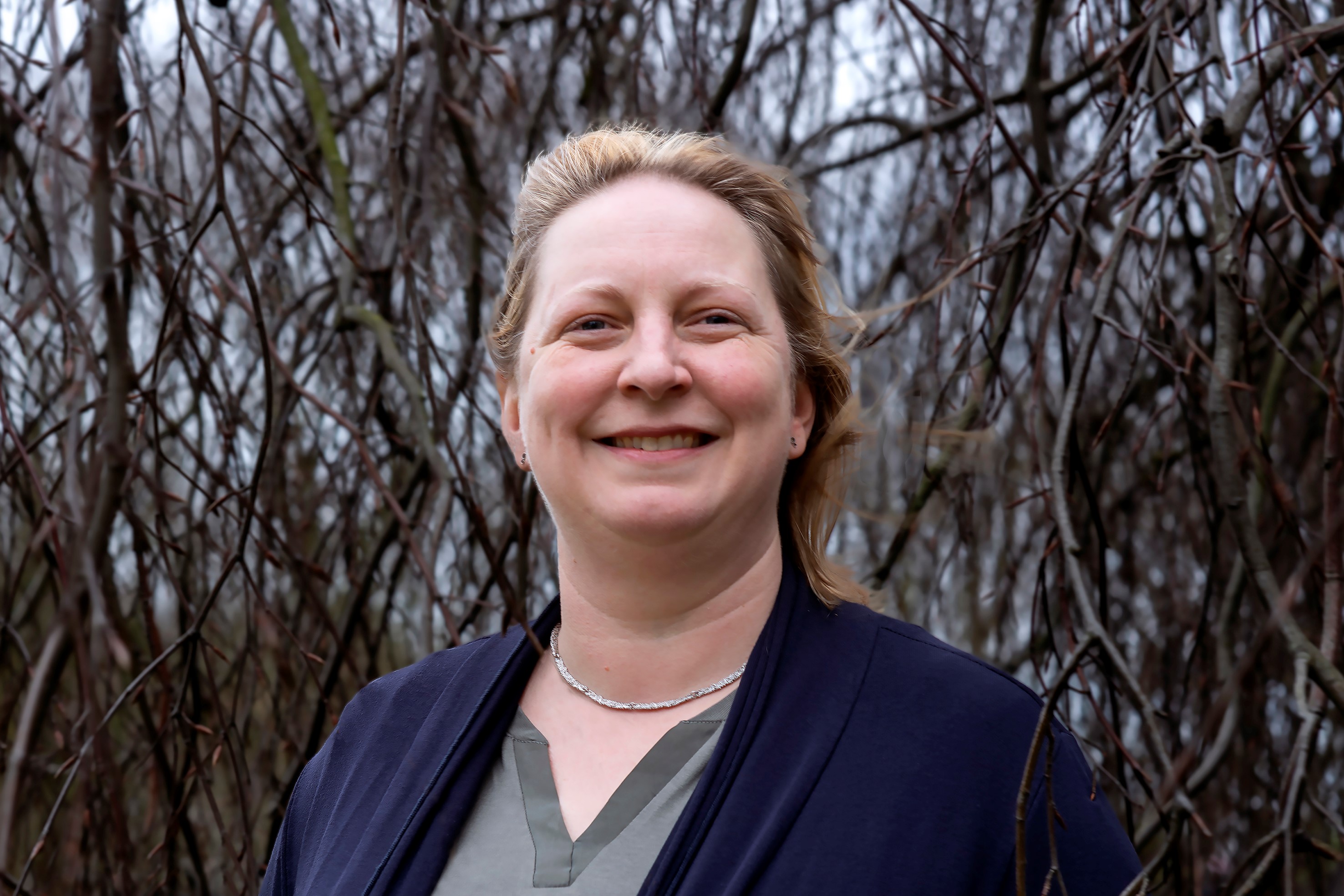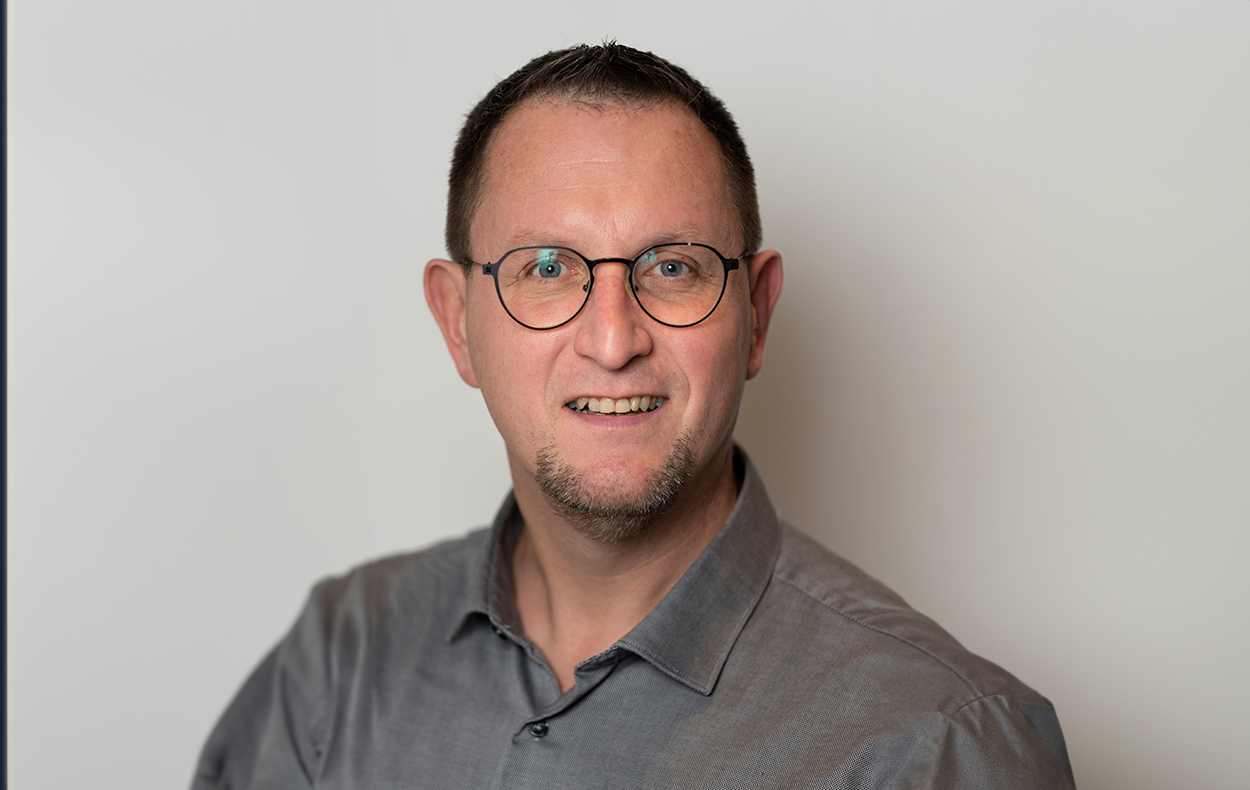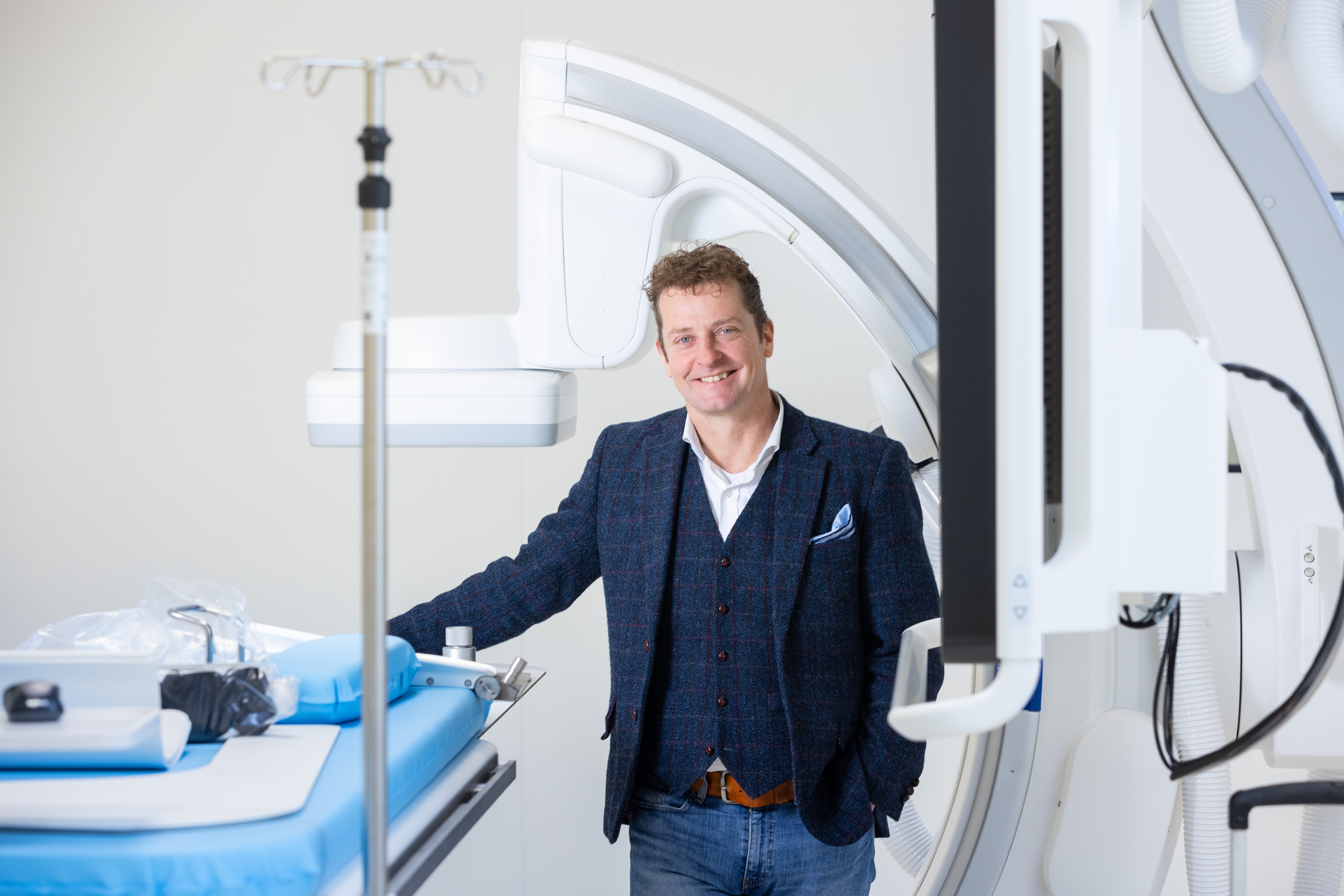More efficient carbon dioxide splitting for sustainable fuels
Using renewable electricity and carbon dioxide (CO2), carbon monoxide (CO) can be produced as a source of sustainable fuels. Driving this process with high temperature is regularly dismissed as not very promising, because the theoretical maximum achievable energy efficiency would be 'only' 50%. However, there have been speculations that the efficiency could be higher if a particular reaction pathway would occur.
When a CO2 molecule splits, a CO molecule and an oxygen atom are released. The oxygen atoms eventually recombine, usually to molecular oxygen. Instead of using two atoms to form molecular oxygen, the oxygen atom can react with CO2 to form molecular oxygen and a second CO molecule. This extra CO is produced in a more energy efficient way.
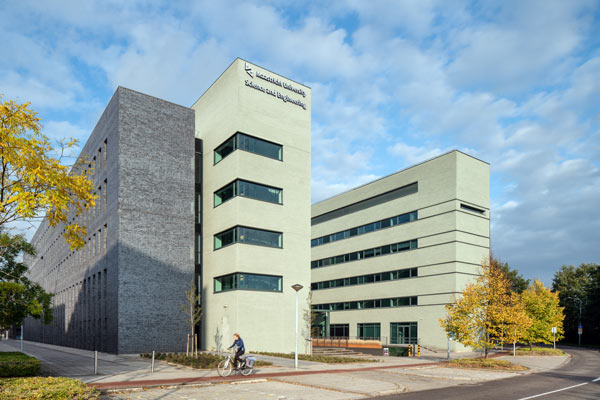
Source: DIFFER
Article by Claud Biemans
Increased efficiency limit
Researchers from DIFFER and Maastricht University have studied the chemistry in high-temperature microwave plasmas using modeling and experiments. They have shown that this reaction pathway takes place at a temperature of 3000 Kelvin. Hence, the efficiency limit of high-temperature CO2 reduction can potentially be increased to 70% instead of the thermodynamic efficiency at 3000 K of around 50%. With the identified enhancement mechanisms in mind, reactors can be designed in order to create more favorable reaction conditions for CO2 splitting.
Alex van de Steeg, PhD student in the DIFFER group Plasma Solar Fuels Devices is the first author of the recent publication of these research results in ACS Energy Letters. Additionally, the journal has decided to highlight this paper and its findings by placing it on the front cover of the upcoming issue.
Publication
Alex van de Steeg, Pedro Viegas, Ana Silva, Tom Butterworth, Alexander van Bavel, Joost Smits, Paola Diomede, Mauritius van de Sanden, and Gerard van Rooij
Redefining the Microwave Plasma-Mediated CO2 Reduction Efficiency Limit: The Role of O–CO2 Association
ACS Energy Lett. 2021, 6, 2876–2881
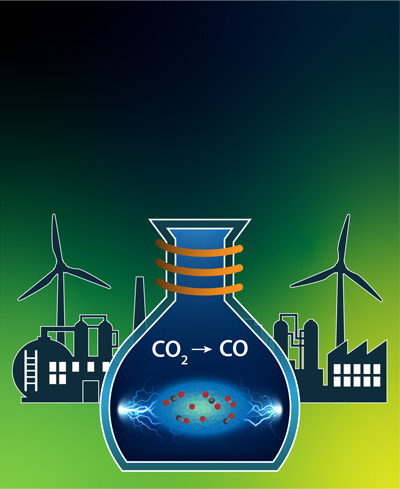
ACS Energy Letters cover image by Erik Langereis
Also read
-
"I am proud that our new Circular Plastics group published its first completely in-house research," Kim Ragaert says. She founded the research group three years ago, when she moved to Maastricht. Her work has laid the foundations for many innovations in the field of plastic recycling, and she is...
-
Gerco Onderwater investigates the flavour of the universe while guarding the flavour of the Maastricht Science Programme. On 31 May, during his inaugural lecture, he provided a pre-taste of his work in Maastricht.
-
Lee Bouwman, a vascular surgeon and endowed professor of Clinical Engineering, specialises in the implementation of groundbreaking healthcare technologies. The key to success, he says, lies in the collaboration between engineers and clinicians. This approach has already resulted in a range of...
